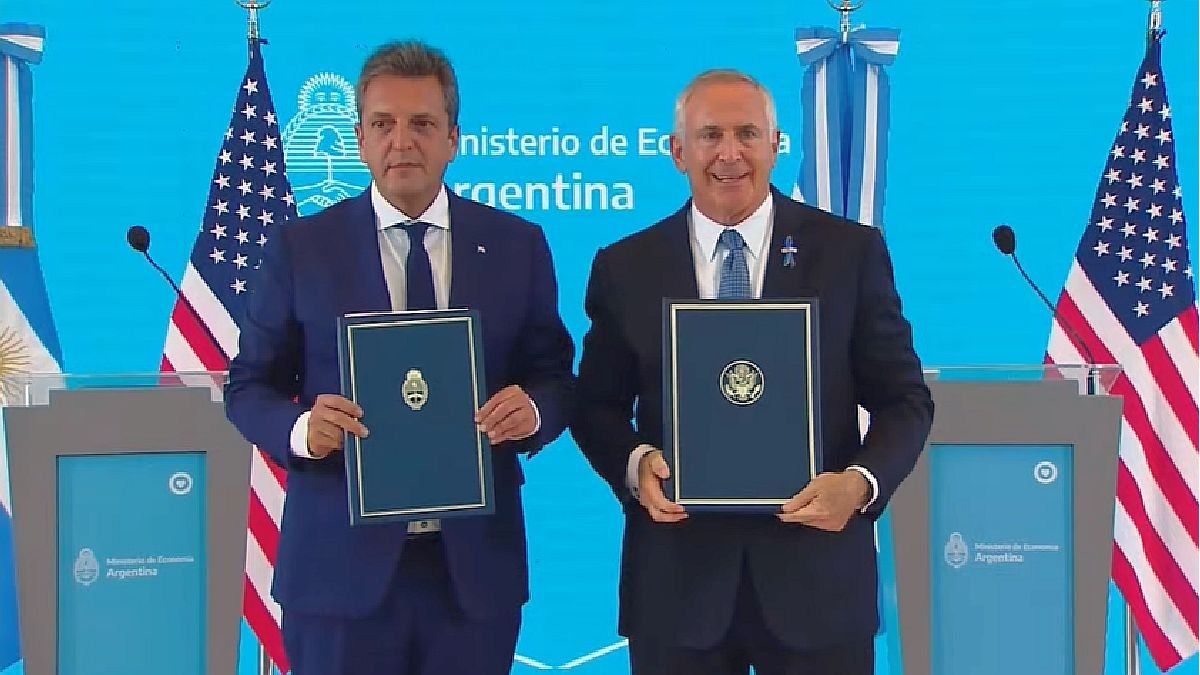Why would Argentina focus on citizens when it has many citizens domiciled abroad?
Argentina’s taxation is based on residency, not citizenship (unlike the US…) and most US IRS forms I have encountered (as a non-US person) for non-resident tax payers ask what country you are a tax resident (in addition to what passports, plural, you hold) so reporting based on residency would be just as easy in terms of access to that information….
My guess is they'll focus on citizens who are tax residents, not foreigners who are tax residents simply because they have more info on their own citizens, and foreigners don't make up a large percentage of the population (and those who do are usually coming from neighboring countries and aren't looking to hide money in the US)
I think this only applies to Argentine citizens who have bank accounts in the US.
If you're an American with a bank account in the US, Argentina can't touch it.
Even if you have dual citizenship.
The issue is citizenship doesn't matter and they don't even need to go through the trouble of looking to seize your assets in a US court; if you're a tax resident of Argentina and your total net assets domestic and/or abroad exceed the prescribed limits you are required to pay the tax, si o si, and failure to do so is a crime.
That being said, it's like speeding, someone has to catch you doing it, and if you're going 10 over and someone is going 60 over in a Porsche I think we know which is getting the priority for enforcement in this hypothetical even though both people are committing crimes.
That seems to be the nub of the issue: does this agreement only reveal information about Argentine citizens, or about Argentine tax residents? If the latter, then if you're an American who is tax resident in Argentina, surely they can use (if they choose to) any information they receive as a result of this agreement to demand any tax that information shows you owe.
I'm guessing it's a bit of a moot point as most Americans likely don't self identify/lie about being a tax resident of Argentina (or any other country) and just put a family member's address as their own, so financial institutions have no reason to suspect otherwise.
Again, what I'd say that people should remember that if you exceed the limits set forth each year and you don't pay the tax it's a crime, regardless of whether AFIP has information from the IRS or any other tax authority. What one decides to do knowing this is a question of risk tolerance.
I don't have 5K to my name let alone 55K, but if I were an American living here, collecting social security with savings or a house under a couple hundred thousand dollars in the US, never having told my bank/brokerage/etc. that I live in Argentina I personally probably wouldn't sweat it because "AFIP pursues American pensioner over one bedroom house in Ohio" doesn't make for good news, but each of us must decide what we deem is an acceptable chance of being caught, and the paying the penalties associated with doing so.

:quality(85)//cloudfront-us-east-1.images.arcpublishing.com/infobae/33WUUSG24FEQBFHVIRRSV5372U.jpg)



:quality(80)/cloudfront-us-east-1.images.arcpublishing.com/lanacionar/YFTO3NETZVBRLLGVVDSHN3Q7VE.jpg)
